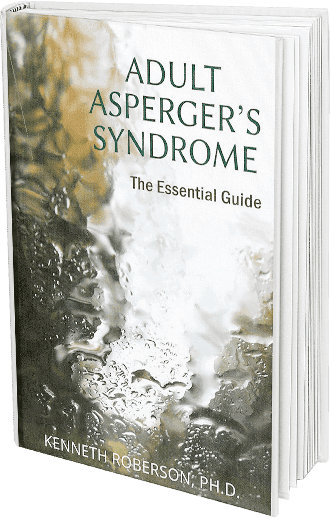
It’s impossible to describe what it’s like exactly to live with someone who has Autism Spectrum Disorder (ASD). Everyone is different. Yet people with ASD share enough characteristics to make it possible to imagine life with such a person. Here are my thoughts about living with an ASD adult, be it spouse, close friend or romantic partner.
Because of the person’s inability to naturally understand how you think and feel you are constantly misunderstood. No matter how many times you’ve explained how you feel, the response you get back doesn’t fit your description. The same is true when you behave emotionally yourself (you’re mad, sad, happy, confused, surprised, etc.). Your life revolves around explaining, clarifying and repeating what you actually felt, what you really meant to say, and why you did what you did, because your Autism Spectrum Disorder partner just doesn’t get it.
It is tempting to avoid social gatherings because of your partner’s awkwardness and the anxiety it causes him or her to engage with others. You find yourself covering for his or her social blunders with various excuses and explanations. Alternatively, you find yourself trying to match your partner with potential friends in order promote outside social interests and activities.
You have to contend with frequent temper tantrums due to your partner’s difficulty managing frustration.
You also contend with your partner’s focus on facts, knowledge and special interests, and you search for ways to interact beyond these narrow preoccupations.
Planning, organizing and decision making is overwhelming for the person you live with, as is prioritizing tasks. This leaves you having to figure out how to divide up and allocate those tasks so they are possible for your partner to accomplish.
If the two of you are sexual, it’s likely your sex lacks the emotional closeness you need in order to feel fulfilled and satisfied. You may understand that sexual intimacy requires sharing thoughts and feelings but your partner doesn’t. Most likely, you find yourself needing to remind him or her that sexual intimacy requires intimate communication, and misunderstandings flourish without it.
You live with the person’s sensory processing problems, which cause extreme reactions to certain noises, smells, foods, and fabrics, to crowds, touch and other situations and modalities.
It’s likely your partner’s long-term memory is much better than short-term memory. He or she may remember mortgage interest rate fluctuations over the last 20 years yet forget to pick up milk at the grocery store or take out the trash the night before garbage pick-up. You have to be the backup memory required to allow the household to function effectively on an everyday basis.
You understand what “the warmth of sound” means but not your partner. This sort of nuanced communication is very difficult for someone with ASD, and it’s probably quite frustrating for you to have to adjust your speech continually in order to avoid misunderstandings. You probably wish your partner could read your mind. Of course, that’s not possible. People with Autism simply lack the ability to do that, at least to the degree that others can.
It’s quite likely you’ve thought countless times your partner doesn’t love you. The words may be there but the actions aren’t. Think again. Your ASD partner might not be able to show love in the usual ways but this doesn’t mean he or she doesn’t love you.
Love is a complicated emotion, and we know It’s hard for people with Autism Spectrum Disorder (Asperger’s) to understand and convey complicated emotions. We also know, at least I firmly believe, they feel emotions as deeply as normal people do.
Katrina Bentley, in her book “Alone Together: Making An Asperger Marriage Work,” describes a simple analogy. “Imagine trying to show somebody that you love them, while your hands are tied behind your back, you’re wearing a blindfold and have tape over your mouth stopping you from speaking!”
To have a happy, satisfying relationship we have to understand what makes our partner happy. And we have to respond to whatever that is, as best we can. When that happens, good things follow.




